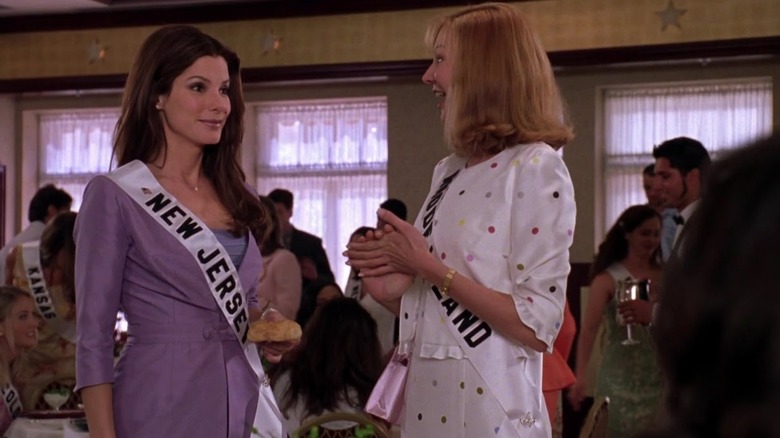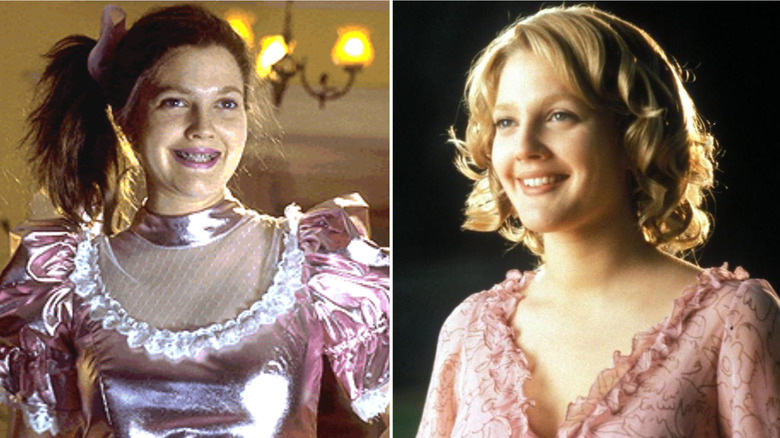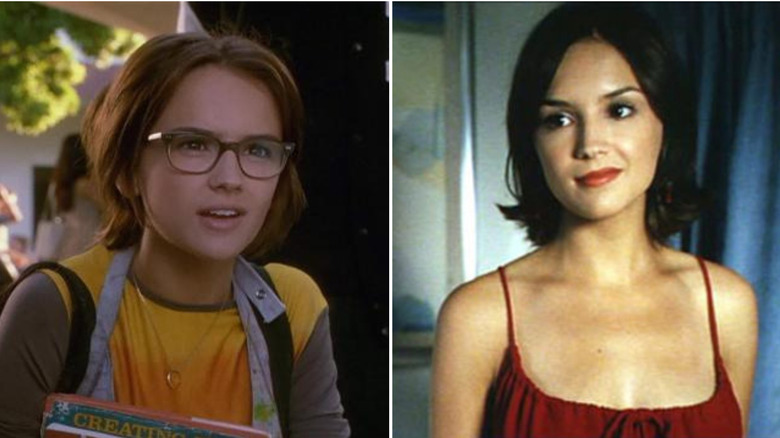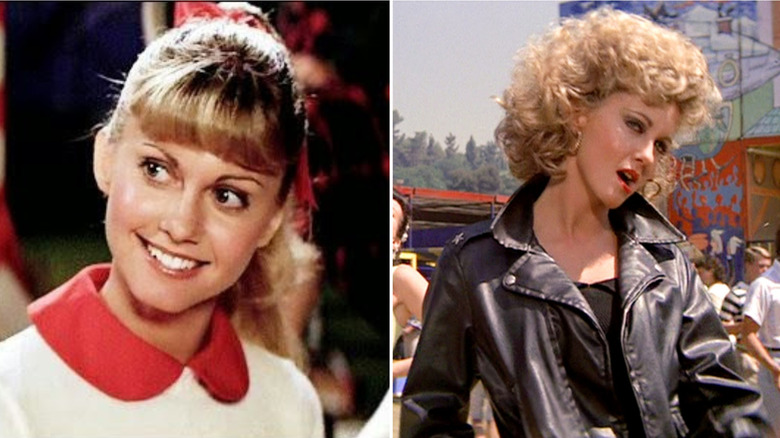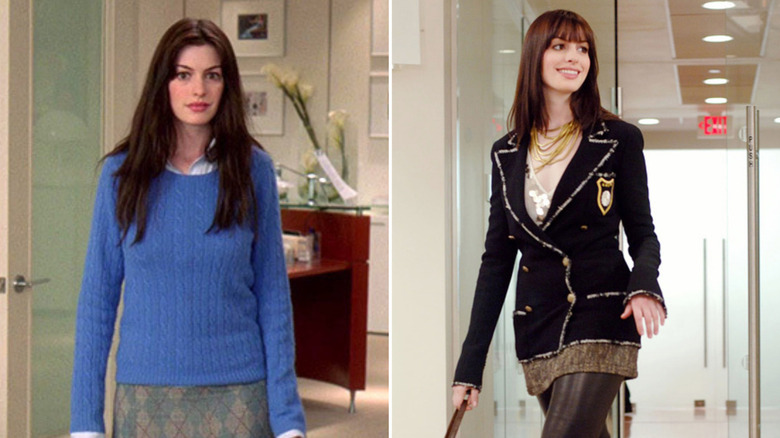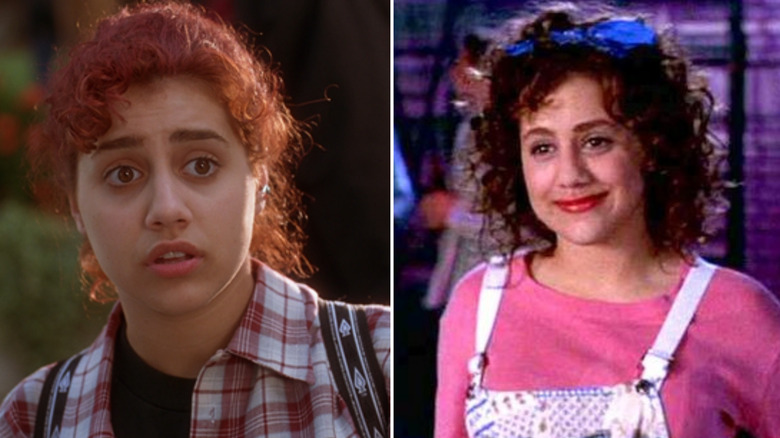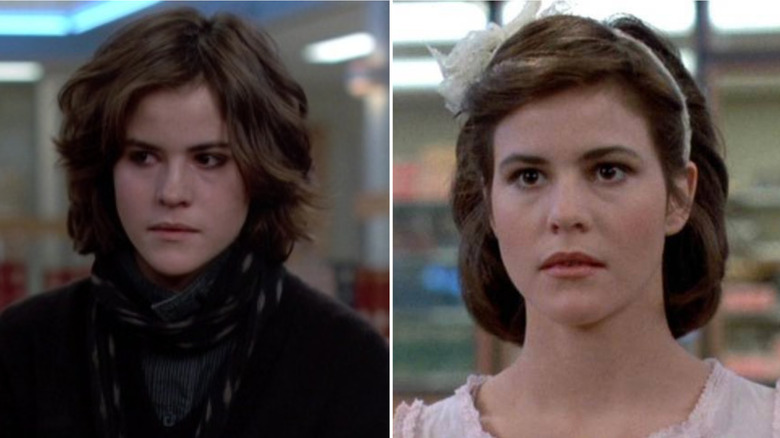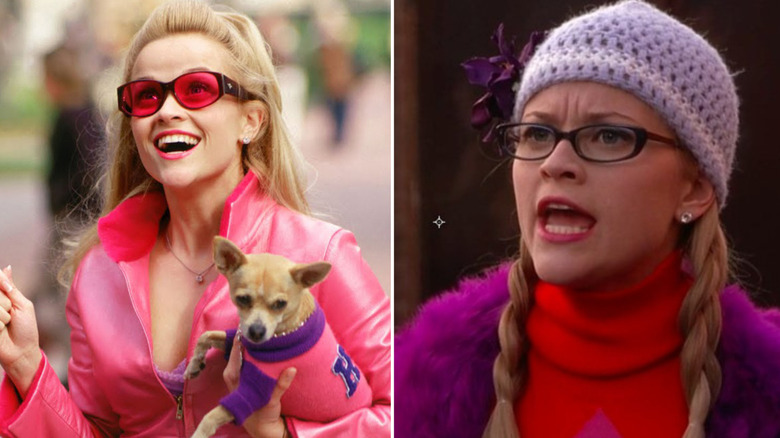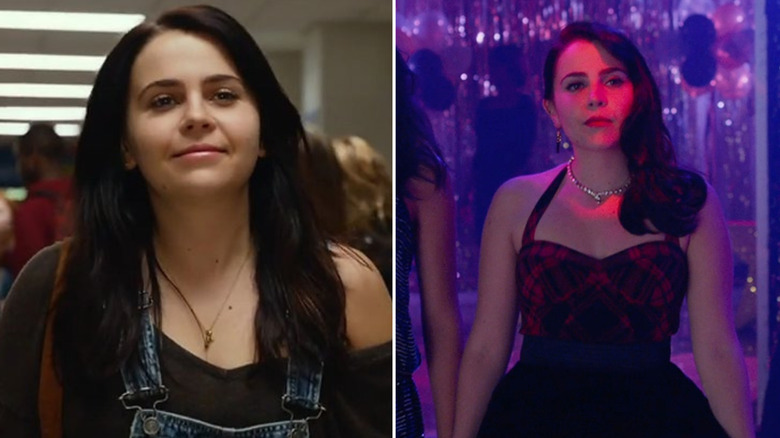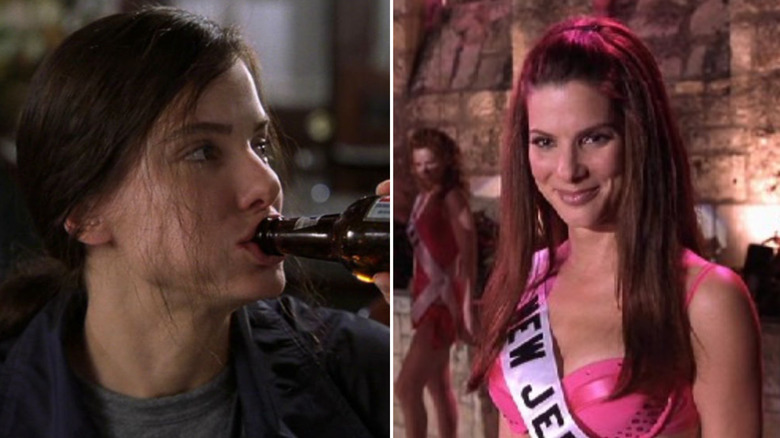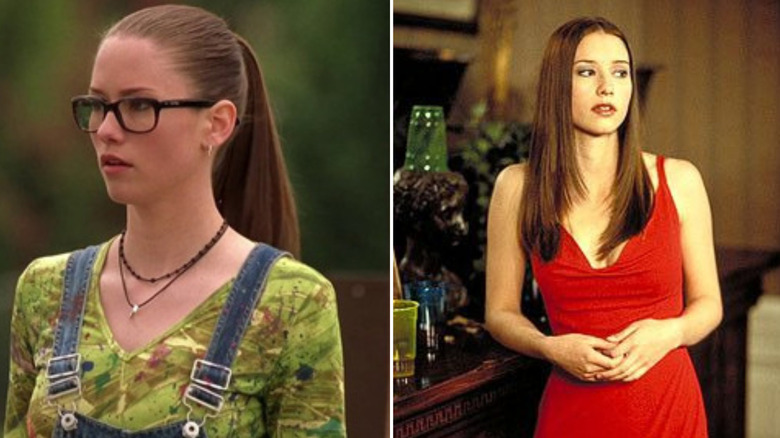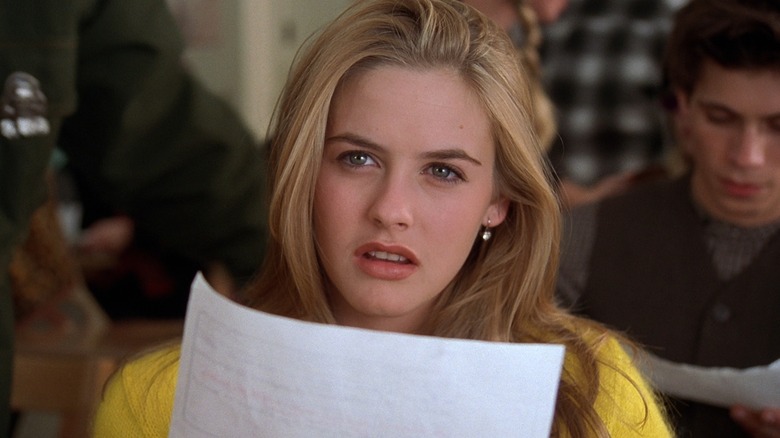The Most Stunning Movie Makeovers
The makeover is a classic staple of contemporary movie culture, encompassing features as far-ranging as The Breakfast Club and Big Momma's House. It's even spread to TV, most cleverly in cult show Clone High's convention-skewering ear-worm of a makeover song. Over the years, the idea of making over a character in order to further his/her (usually her, outside of the realms of wacky comedies such as the aforementioned Martin Lawrence vehicle and maybe Mrs. Doubtfire) status in a flick has been called into question, even sometimes chastised for being anti-feminist.
Regardless of the ideological concerns, there's no denying the feel-good element. It's nice to see a character emerge out of her cocoon like a butterfly, most often with a newfound zest for life and a confidence hitherto unseen. Thanks to their noteworthy makeovers, a select bunch of movies have even reached all-timer status, elevating the flicks to classics. These are my picks for the most special, memorable, and life-changing movie makeover moments.
Never Been Kissed (1999)
Raja Gosnell's (who, funnily enough, directed Big Momma's House the very next year) 1999 heart-warmer sees Drew Barrymore as Josie, a wannabe journalist for the Chicago Sun-Times who goes undercover as a high school student to nail her first big story, thereby bringing up a lot of painful repressed memories about her own high school experience as "Josie Grossie." Genuinely heartbreaking flashbacks show the actor kitted out in braces, with frizzy hair and a frumpy wardrobe, but Josie's initial makeover (via well-meaning colleague Anita) sees her strolling the halls on her first day in, of all things, a white feather boa.
The movie's strong anti-bullying message is perhaps best captured in Josie's speech at the prom, when, finally fully herself, she tells her assembled classmates to find out who they are and "try not to be afraid of it." Josie's makeover is, therefore, more about learning to love who she is inside, and to reflect that on the outside, than to necessarily throw off the shackles of her previous geekdom and be someone new.
In a 2015 interview with Glamour magazine, Barrymore discussed how she "loved" playing Josie and that it was one of her favorite roles she's ever done. The magazine even had her recreate one particular scene to showcase her everlasting love of the character.
She's All That (1999)
She's All That is notable for many things, not least a super-weird performance from a pre-Fast And Furious Paul Walker (notice how he half-smokes a cigarette in just a couple scenes), and the inclusion of Usher, as a character who may or may not attend the high school with everyone else. Freddie Prinze Jr.'s class president is tasked, by Walker's character, to turn the most hideous girl in school into the prom queen. But, as so cleverly sent up by Not Another Teen Movie (see below), all that appears to be wrong with Rachael Leigh Cook's Laney is that she has glasses, a ponytail and paint on her overalls.
Curiously, for a teen movie so intent on pushing the myth of being popular above all else (albeit with a still sharp edge that skewers teen movie traditions, particularly in the casting of so many actors of color to play the coolest kids in school), the makeover itself is very sweet and well-intentioned. Mack, sister to Prinze Jr.'s character, Zack (I just got that), takes care of her subject's hair, eyebrows, and clothing but introduces her as "the new, not improved, but different" Laney. And, it's worth noting that as soon as we see Laney in school again, on the campaign trail, she's back in her paint-covered overalls. In keeping with this idea, in a 2015 interview with Cosmopolitan, director Robert Iscove fired back at criticism of Cook's casting, describing the scene as their "Clark Kent moment."
Grease (1978)
If there is a better makeover reveal than "tell me about it, stud" we have yet to see it. The moment when the brand-new Sandy (previously Sandra Dee, lousy with virginity) strolls into the funfair, leaving everybody's jaws on the floor in the process (but particularly a stricken Danny), is arguably one of the all-time coolest, if not the coolest, in cinema history. Nowadays, the idea that Sandy had to completely change who she is (or, at least, how she dresses) to impress Danny might seem a bit outdated. But it's worth remembering that he also changes for her.
The beauty of Grease's big makeover reveal, aside from the killer duet that follows, is it's actually a double reveal. Sandy has tarted herself up as the kind of woman she imagines Danny wants, smoking, wearing tight clothing, and with big hair, but he's also done the same, showing up to the fair in a Letterman sweater (much to the chagrin of his buddies.) True, Danny almost immediately chucks it aside but the message is still clear: both of them will have to adjust slightly in order for the relationship to work.
The Devil Wears Prada (2006)
In order to make a beautiful woman seem hideous (in Hollywood terms), very often the go-to is to put the actor in frumpy clothing, or hide her under big glasses. However, Anne Hathaway has twice been buried under frizzy hair in an effort to blunt her otherwise classically good looks. It made sense in The Princess Diaries, because her Mia was a dorky high school student, but there's something hugely grating about how smart college graduate Andy turns up to an interview in The Devil Wears Prada. She looks as though she hasn't even brushed her hair, which is surely a prerequisite even for the least girly among us!
Andy's makeover is of the more wish fulfillment variety, particularly when fashion editors, tasked by Nylon with deciphering whether her Prada experience is realistic (the movie is based on a tell-all book), mostly pointed out that a lowly assistant would not, under any circumstances, get to take the Chanel home. Still, who doesn't want to be dressed up by Stanley Tucci's fabulous, no-nonsense fashionista, even if it means leaving those boots back in storage for the night?
At the end of the movie, when Andy is interviewing for a "real" journalism job, although she isn't clad in head-to-toe couture, the hair is noticeably sleeker. So, really, her makeover was all about learning how to groom a bit better for a professional environment. Which she probably should have known anyway.
Clueless (1995)
The 1995 bonafide teen classic Clueless boasts two makeovers. Unlike Grease, however, one of those does not include heroine Cher's paramour (mainly because Paul Rudd couldn't possibly get any cuter). First up, Cher and best bud Dionne help new girl Tai with her tomboyish dress sense so she can better fit in with their popular crowd. It's a noble cause that subsequently leads Tai to be a bit of a jerk to those lower down on the food chain, but the reflection of herself in her protégé helps Cher take steps to, as she puts it herself, makeover her soul.
In an interview with MTV, costume designer Mona May explained how they tried to stay "grounded" with Tai, both in her initial grungy look and following the makeover. Although she looks just as fabulous as Cher and Dionne, actor Brittany Murphy is certainly tasked with wearing considerably less outlandish stuff than her co-stars throughout.
Her makeover sequence, scored to "Supermodel" by Jill Sobule, is hugely empowering, with Tai proudly raising her hands at the end to reaffirm her new sense of self. As with virtually everybody else on this list, however, it's what's inside that truly counts and by the end she's back to her old, super-sweet self. Just with slightly better clothes.
The Breakfast Club (1985)
The most contentious movie makeover on this list is undoubtedly that of Ally Sheedy's Allison Reynolds, or Basket Case, in John Hughes's classic teen movie The Breakfast Club. Memorably lampooned in Nickelodeon's Victorious, via dorky Robbie Shapiro (a clever gender swap that hammered home how absurd the premise was 30 years later), the big reveal sees Sheedy's previously grungy weirdo transformed, via a hairband, lip-gloss, and virginal white dress, into the object of a jock's affection.
It's a moment that's been called out time and time again and anyone who grew up a little bit weird (hi!) can attest to how offensive it is to see an alt kid turned into a normie for no discernible reason. Hell, even Sheedy herself has talked about how she didn't fully agree with the scene, as in a 2015 interview with Elle magazine. However, Sheedy's comments put the moment into better context.
The actor explains how she saw it more as taking off a mask, even if the movie came across as though suddenly this character was pretty. With this in mind, the makeover actually reads more like a revelation of who the so-called Basket Case really is rather than an attempt to hide that person because she doesn't fit the typical beauty aesthetic.
Legally Blonde (2001)
If there's anyone on here who definitely doesn't need a makeover, it's the flawlessly fashionable Elle Woods, who accessorizes so hard even her dog matches her outfit. In fact, Elle's transformation is more internal than anything else, as she knuckles down to prove to her hideous ex, and his gaggle of pompous intellectual friends, just how valuable she is as a person in spite of, or perhaps in conjunction with, those fierce outfits.
Elle's big moment sees her dressed down and carrying a load of books, leading to the biggest jaw drops from the student body this side of Grease. It's worlds away from her first lecture, which finds Elle donning super-cute specs but little in the way of actual learning tools (she memorably sits in a sea of laptops with only a notebook and fluffy pen to take notes).
In the end, of course, Elle doesn't need to dress totally differently to be taken seriously, but her decision to cover her flowing blonde locks with a sensible beanie hat on a visit to the library complements her more serious outlook. As costume designer Sophie De Rakoff told Hello Giggles, Elle may alter her clothing choices to better suit her newfound attitude, but "she always retains her signature color and her specific sense of style and chic."
The DUFF (2015)
The most recent entry on this list shows how attitudes to movie makeovers in Hollywood have changed over the years. Grungy misfit Bianca (the always adorable Mae Whitman), feeling dwarfed by her more conventionally "hot" best friends, turns to the school jock, her neighbor and childhood friend Wes (Robbie Amell), to help update her look so she can score a date with her crush. Going completely against all previous teen movie wisdom, Bianca seeks him out, rather than her being spotted across the quad and discussed in gross detail.
As narrator, Bianca is also the master of her own story, giving the character a sense of autonomy lacking from the likes of The Breakfast Club, where someone else decides the character needs to change. And, in keeping with a more modern outlook, Bianca doesn't change her style hugely either (her hair stays the same, as do her makeup choices).
Add to this the fact her friends give her a hard time over wearing her favorite plaid shirt to a party, only to help Bianca turn it into a super-cool homecoming dress for the big reveal at the end, and the message is abundantly clear: always be yourself and don't be afraid to show everyone who you are. This was particularly pertinent to Whitman herself, who told Buzzfeed the movie is "about realizing that the way that people feel is real no matter who you are or how you look."
Miss Congeniality (2000)
Similarly to The Devil Wears Prada, Miss Congeniality (aka Chandler's favorite film of all time) sees the stunning Sandra Bullock reduced to chugging beer (shock!), eating an entire pint of ice cream (gasp!), and, er, snorting to drive home how disgusting her no-nonsense FBI agent is. Never mind that it's established pretty early on that Bullock's Gracie Hart can kick some serious butt, if she isn't attractive to a man, she doesn't exist.
Enter Michael Caine's coach who, like Tucci in Prada, whips Gracie into shape so she can go undercover as a beauty contestant. This mostly involves, like Laney Boggs, plucking her eyebrows and, like Andy, giving her much sleeker hair. The effect is to allow colleague Eric (Benjamin Bratt, in what must be his only non-bad guy role to date) to admit he has feelings for her, but the seeds of their relationship are really sown while the two are (quite literally) fighting over her reluctance to participate in the first place. As with Never Been Kissed, Gracie's makeover has more to do with accepting who she is rather than changing everything about herself to gain acceptance elsewhere.
Not Another Teen Movie (2001)
Although it may seem like a cheeky addition to a discussion of the most stunning movie makeovers, Not Another Teen Movie's ruthless skewering of this trope bears celebrating. Taking on She's All That in particular, the film sees mean sister Katherine make over the lowly Janey Briggs by... taking off her glasses and taking out her ponytail. A nod to the dialogue from the original 1999 film ("You'd really have to trust me") makes the sequence even funnier, while an earlier scene sees Chris Evans refuse to take on Janey as part of the bet because having paint on her overalls is "disgusting."
Not Another Teen Movie is hit and miss when it comes to humor, frequently relying on gross-out to get its message across, but Evans is terrific (as always) as the popular boy gone good and the makeover, and subsequent tumble down the stairs into the basement below (which echoes the "she's so clumsy!" trope so frequently found in rom-coms and teen movies, to denote how an otherwise gorgeous woman's is completely unattractive), is genius. If only they'd turned a goth into a regular girl during their Breakfast Club skit, Ally Sheedy might have got some justice, too.
Making over our souls
Movie makeovers aren't perhaps as in vogue as they once were, thanks to our more PC-aware modernist standards, but that doesn't mean they're completely without merit. A makeover can help a character to heal, as with Never Been Kissed, face up her own shortcomings, like in Clueless, or even just realize who she truly is inside, such as in The DUFF. And, as with that most recent example of this oft-used trope, the most important lesson Bianca learned wasn't about attracting the boy she liked, but about staying true to herself.
They might seem on the surface to be a bit superficial, a lazy way of encouraging character growth or forcing a romantic entanglement, but every entry on this list has the same thing in common: they all result, and revel, in the character who's getting the makeover realizing that looks actually aren't everything and that it's what's inside that truly matters. And that's true whether you're wearing a white feather boa, your favorite plaid shirt, or the Chanel you definitely should not have been allowed to bring home from work.
